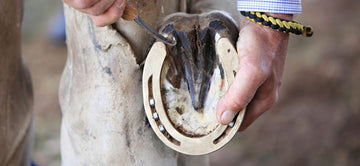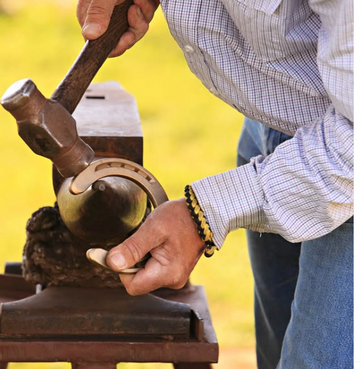Introduction to Dog Care
Ensuring your dog receives the best possible care at home is crucial—whether you’re away for a day or an extended trip. A reliable dog sitter or pet sitter can be a valuable resource in keeping your dog comfortable and happy in your absence.
These professionals help maintain routines, provide companionship, and give your dog all the attention they need, ensuring their well-being while you’re gone.
Whether you’re traveling for business or taking a well-deserved vacation, choosing the right care option can give you peace of mind. Many pet parents find joy in receiving video updates and photos from sitters, knowing their beloved dogs are being treated with love and attention.
The key to successful in-home care lies in preparation, clear communication, and understanding your dog’s specific needs and habits.

Choosing the Right Care Option
When selecting care, it’s important to match the service with your dog’s personality, energy level, and needs. Some dogs thrive in social settings like doggy day care, where they can play with other pets during the day and return home at night. Others prefer one-on-one attention, which is where a pet sitter or house sitter shines.
Dog walking is an essential service for maintaining a dog's health and well-being, especially for busy owners and energetic dogs.
For dogs with separation anxiety or those who do best in familiar environments, hiring someone to stay at your home can be the best option. This keeps your dog’s daily routine intact and reduces stress.
Pet sitting services often include walks, feeding, playtime, medication management, and even light household duties. Make sure to interview potential sitters thoroughly and choose someone whose values and style align with yours.
Preparing Your Home
Before leaving your pet in someone else’s care, prepare your home for a smooth handover. Provide a detailed pet care guide, including feeding instructions, medication schedules, daily routines, and behavioral notes.
Be sure to specify how many pets require care to ensure the sitter is well-prepared. Label supplies and leave enough food, treats, medications, waste bags, and cleaning products for the duration of your absence.
Don’t forget to leave a list of emergency contacts, including your vet’s information and the nearest animal hospital. Let your sitter know which areas are off-limits, how to use alarm systems, and where to find cleaning tools or pet first-aid supplies. If your dog enjoys specific parks or trails, offer suggestions.
Clear communication and preparation lead to a safer, more comfortable experience for both your pet and the sitter.
Understanding Dog Behavior
A good pet sitter or dog walker should be well-versed in canine behavior and body language. Dogs express discomfort, stress, or happiness in subtle ways, and recognizing these signals can prevent problems before they arise. If your dog is shy, a sitter who understands how to build trust is essential.
Loving care is crucial in building trust and ensuring your dog's well-being. Behavioral needs can vary with age and temperament. Puppies may require extra supervision and socialization, while older dogs may need calm environments and medication. Always brief the sitter on your dog’s quirks, such as leash reactivity or separation anxiety.
Dogs thrive on familiarity, and the right caregiver will reinforce your training techniques and routines.

Nutrition and Hydration
Feeding your dog properly during your absence is a must. Leave precise instructions about portion sizes, feeding times, and any treats or supplements your dog may need. If your dog has allergies or is on a special diet, communicate this clearly and leave pre-measured portions if necessary.
Hydration is equally important. Make sure your sitter checks and refills your dog’s water bowl multiple times a day. For dogs that need coaxing to drink more, provide suggestions such as flavored water or ice cubes.
Sitters should report any changes in appetite or drinking behavior, as these can be early signs of illness. Additionally, sitters can assist in taking pets to groomers if needed, ensuring comprehensive care for your pet.
Health and Wellness
As a pet owner, prioritizing your pet’s health and wellness is crucial when seeking pet care services. Pet sitters and dog walkers play a vital role in promoting your pet’s physical and mental well-being. Regular exercise and attention from a reliable pet sitter can keep your pet active and happy, reducing stress and anxiety.
A trustworthy pet sitter can also administer medication and monitor your pet’s health, giving you peace of mind while you’re away. For pets with special needs, such as allergies or disabilities, pet care services can provide the specialized care they deserve. Regular walks and playtime are essential for reducing stress and promoting a happy, healthy life.
By choosing experienced pet sitters who understand the importance of health and wellness, pet owners can ensure their pets receive the best possible care. Many pet sitting services offer additional benefits, such as providing a comfortable and familiar environment for pets, reducing the risk of illness and stress.
By selecting a reputable pet care service, you can promote your pet’s overall health and well-being, ensuring they lead a happy and fulfilling life.
Exercise and Activity
Dogs of all sizes and breeds benefit from regular exercise and mental stimulation. Without it, boredom and behavioral issues can arise quickly. Provide your sitter with a list of your dog’s favorite activities, walking routes, and safe off-leash areas, if allowed.
Be upfront about any physical limitations or injuries. A good sitter will tailor activities to your dog’s abilities—whether that means long trail hikes or gentle play in the backyard. Daily playtime with toys or puzzle feeders is a great way to keep your dog’s brain engaged and body moving.
Safety Precautions
Safety is a top priority when it comes to pet care, and pet owners should take necessary precautions to ensure their pets are protected. Trustworthy and reliable pet sitters and dog walkers with a proven track record of providing safe and responsible care are essential.
Pet owners should thoroughly research and interview potential pet sitters, asking about their experience and qualifications to ensure they can provide the best care. Ensuring a safe and secure environment is crucial, so pet owners should pet-proof their home and secure it before leaving their pets in someone else’s care.
Providing pet sitters with important contact information, such as your veterinarian’s phone number, is essential in case of an emergency. Regular updates and communication with pet sitters can help ensure that pets are safe and receiving the care they need. Preparing your pets for pet sitting by providing familiar toys and blankets can also help reduce stress and anxiety.
By taking these safety precautions, pet owners can trust that their pets are in good hands and will receive the care they deserve, ensuring their safety and well-being.
Creating a Routine
Establishing a routine is crucial for pets, and pet owners should work with their pet sitters to create a schedule that meets their pet’s needs. A consistent routine can help reduce stress and anxiety in pets, promoting a sense of security and comfort.
Pet sitters can help maintain a routine by providing regular feedings, walks, and playtime, as well as administering medication and providing attention. Communicating your pet’s routine and needs to your pet sitter, including any special requirements or preferences, is essential.
Incorporating fun activities, such as trips to dog parks or playtime with other pets, can keep pets engaged and entertained. Pet owners can trust that their pet sitters will follow their routine and provide the care their pets need, giving them peace of mind while they’re away.
By creating a routine, pet owners can ensure that their pets receive the care and attention they deserve, promoting their overall health and well-being. A consistent routine can also help pet owners stay connected with their pets, even when they’re not physically present, through regular updates and communication with their pet sitter.
Building Trust with the Sitter
Introduce your dog to the sitter before your departure. A few trial visits allow your dog to become comfortable and give the sitter time to learn your routines. Watch how the sitter interacts with your dog—calm, confident handling is essential.
Make sure your sitter is trained in basic dog first aid and understands how to handle emergencies. Provide written consent forms for veterinary treatment in case of illness or injury. If your sitter is staying in your home, agree on house rules, cleaning responsibilities, and expectations in advance.
Additionally, consider the importance of overnight care for pets that need attention and companionship during the night.
Communication with Caregivers
Effective communication is key when working with pet caregivers, and pet owners should establish open and clear communication with their pet sitters. Providing your pet sitters with important information, such as your pet’s medical history, dietary needs, and behavioral quirks, is essential.
Regular updates and communication can help ensure that pets are receiving the care they need and can also help pet owners stay connected with their pets while they’re away. Pet sitters can provide pet owners with video updates, photos, and written reports, giving them peace of mind and reassurance that their pets are in good hands.
Pet owners can also ask their pet sitters questions and request additional services, such as extra walks or playtime, to ensure their pets receive the care they deserve. Clear communication can help prevent misunderstandings and ensure that pets receive the best possible care, promoting their overall health and well-being.
By establishing open and clear communication, pet owners can build a strong relationship with their pet sitters, ensuring that their pets receive the care and attention they deserve.
Creating a Comfortable Environment
Dogs are creatures of habit and do best in familiar, safe surroundings. Ensure their bedding is clean, favorite toys are nearby, and feeding stations are easily accessible. Pets feel most comfortable and relaxed in their own home, which helps reduce anxiety when their owners are away. Reduce potential stressors like loud noises or access to off-limit areas.
You can also consider leaving behind a blanket or t-shirt with your scent—it can be comforting for dogs who may miss you while you’re away. Night lights, white noise machines, or background TV noise can also help dogs feel at ease in your absence.
Additional Considerations for Special Needs Dogs
Dogs with special needs—whether due to age, health conditions, or behavioral challenges—require more detailed instructions. If your dog takes medication, give your sitter a demonstration.
If your dog is deaf, blind, or has mobility issues, make sure the home is safely arranged. Family and friends can be invaluable in providing care for special needs dogs, offering the emotional connection and attentiveness that these pets require.
Also, inform the sitter of your dog’s triggers or anxiety sources, and how to manage them. For dogs undergoing treatment or recovering from surgery, a pet sitter experienced in medical care may be best.
Don’t hesitate to ask for references or previous experience. Consider an exchange for pet-sitting arrangements, where you care for another's pet in return, fostering a community of mutual support among dog owners.
Benefits of Using Pet Sitting Services
In-home care offers several benefits over traditional boarding:
-
Personalized attention
-
Familiar environment
-
Reduced risk of illness from other animals
-
Maintained routines
-
Lower stress for your dog
-
Happy pets at home and peace of mind knowing they are well cared for
Additionally, many professional pet sitters provide daily updates, including texts, photos, and videos, so you can check in and feel confident that your dog is safe and well cared for.
Frequently Asked Questions
What do most pet sitters charge per day?
Rates vary depending on various factors such as location, duration of the house sit, number of pets involved, and the overall workload required for the sitter, but typically range from $25 to $75 per day for in-home care. Overnight stays may cost more.
How to care for a dog in the home?
Provide consistent feeding, exercise, playtime, and affection. Dog walking is essential for providing pets with exercise and attention, especially for busy owners and energetic dogs. Maintain a clean, safe space and monitor for health or behavior changes.
How much to pay a house sitter with a dog?
For house sitting with pet care, expect the price to range from $50–100 per night, depending on duties, number of pets, and your area.
How much should I pay a friend to watch my dog at their house?
A casual arrangement might range from $20–50 per day. Discuss expectations, provide supplies, and offer a thank-you gesture if they’re not charging full rates.
Conclusion
Taking care of your dog at home—even when you’re not there—doesn’t have to be stressful. With proper planning, a trustworthy sitter, and clear communication, you can rest easy knowing your dog is receiving the love, attention, and care they need.
Personalized care for your pooch and pup ensures they stay comfortable and happy in their familiar environment.
Whether your dog thrives on playtime, needs extra medical care, or simply wants to nap in their favorite spot, choosing the right in-home care option ensures they stay safe, healthy, and happy.
By prioritizing their well-being and preparing thoroughly, you’re setting your dog up for a stress-free experience every time you leave home.










